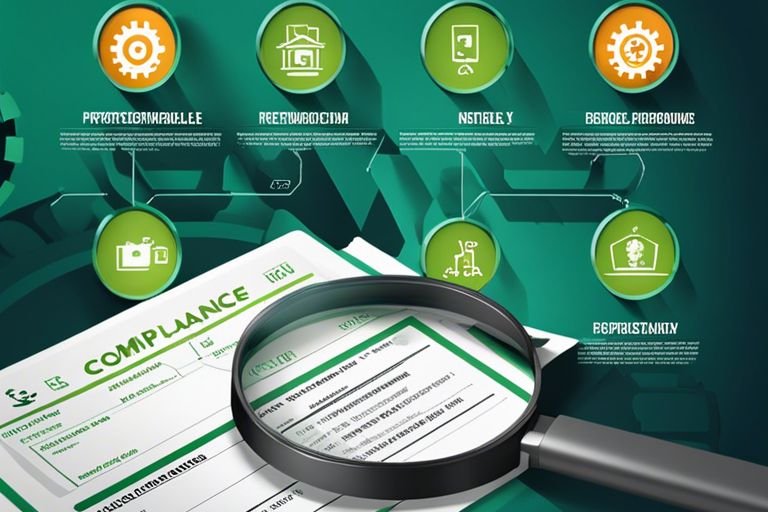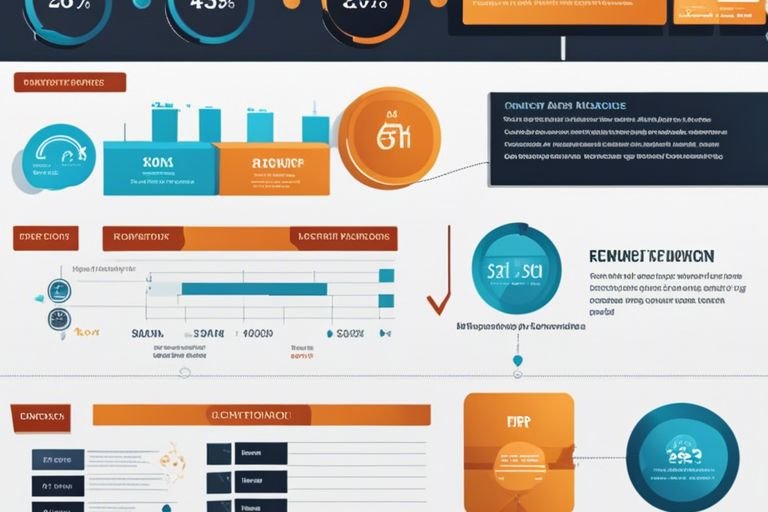How Does ERP Contribute to Improved Compliance and Regulatory Reporting?

Oftentimes, businesses struggle to keep up with the ever-changing landscape of compliance and regulatory reporting. However, enterprise resource planning (ERP) systems have emerged as a powerful tool to streamline and enhance these processes. ERP systems, with their integrated approach to managing various aspects of a business, play a crucial role in ensuring adherence to industry regulations and standards. By consolidating data, automating processes, and providing real-time insights, ERP systems enable organizations to improve their compliance efforts and navigate the complexities of regulatory reporting with confidence. In this blog post, we will explore the specific ways in which ERP contributes to improved compliance and regulatory reporting, and how businesses can leverage these capabilities to stay ahead in today’s highly regulated business environment.
Key Takeaways:
- Enhanced Data Accuracy: ERP systems provide real-time, accurate data that ensures compliance with regulatory reporting requirements. This reduces the risk of non-compliance and potential penalties.
- Streamlined Processes: ERP contributes to improved compliance by automating processes and providing standardized reporting formats. This reduces the time and effort required for regulatory reporting and minimizes the margin for error.
- Advanced Monitoring and Control: ERP systems offer advanced monitoring and control features that enable organizations to stay on top of changing regulations and quickly adapt their reporting processes to remain compliant.
ERP and Compliance Frameworks
The implementation of an Enterprise Resource Planning (ERP) system plays a crucial role in ensuring regulatory compliance and reporting accuracy for organizations across various industries. By incorporating multiple modules that encompass financial, human resources, and supply chain management, ERP systems offer a comprehensive framework for businesses to align their processes with industry regulations and standards. This enables companies to streamline their compliance efforts and minimize the risk of non-compliance penalties.
Centralized Data Management
One of the key advantages of ERP systems in contributing to improved compliance and regulatory reporting is the centralized data management capability they offer. By consolidating all relevant data from different departments and business functions into a single, integrated platform, ERP systems enable organizations to maintain a unified source of truth for compliance-related information. This not only enhances data accuracy and consistency but also facilitates seamless access to critical data for compliance monitoring and reporting purposes.
Automated Workflows and Audit Trails
Any discussion about the role of ERP in compliance and regulatory reporting would be incomplete without emphasizing the significance of automated workflows and audit trails. The automation capabilities of ERP systems allow organizations to establish standardized processes for compliance management, reducing the reliance on manual interventions that are susceptible to errors. Furthermore, the generation of audit trails within ERP systems ensures the traceability of all compliance-related activities, offering a transparent view of data modifications and system transactions for regulatory scrutiny.
The availability of intuitive dashboards and reporting tools within ERP systems also strengthens compliance efforts by offering real-time visibility into key performance indicators and facilitating the generation of accurate regulatory reports. This not only streamlines the reporting process but also enhances the overall transparency and accountability of compliance-related activities within the organization.
Role of ERP in Maintaining Data Integrity and Security
One of the fundamental roles of ERP systems in contributing to improved compliance and regulatory reporting is ensuring the integrity and security of data. By implementing robust data validation and encryption mechanisms, ERP systems help organizations safeguard sensitive information and prevent unauthorized access or tampering. This proactive approach to data security is essential for maintaining the trust and confidence of regulators, customers, and other stakeholders in the organization’s compliance practices.

Streamlining Regulatory Reporting
Unlike traditional reporting methods, enterprise resource planning (ERP) systems contribute to improved compliance and regulatory reporting by streamlining the entire process. By centralizing all data and standardizing reporting processes, ERPs ensure accuracy, consistency, and timeliness in meeting regulatory requirements.
Standardized Reporting Processes
On top of eliminating manual data entry and spreadsheet-based reporting, ERP systems establish standardized reporting processes that align with regulatory guidelines. This not only reduces the risk of errors and inconsistencies, but also ensures that all regulatory reporting requirements are met in a timely manner, minimizing the potential for penalties or fines.
Reporting in real time allows organizations to monitor their compliance status at any given moment, identify potential issues, and take corrective actions promptly. With access to accurate and up-to-date data, compliance managers can analyze trends, assess risks, and make informed decisions to uphold regulatory standards. This level of insight and agility can significantly enhance an organization’s ability to comply with regulations and adapt to changes in the regulatory landscape.
Integration with External Reporting Systems
Processes that integrate with external reporting systems, such as government agencies or industry regulators, enable seamless data exchange and submission. This eliminates the need for manual data transfer and reduces the risk of errors or delays in regulatory reporting. By connecting with external systems, ERP platforms ensure that all required information is accurately transmitted to the relevant authorities, contributing to greater transparency and trust.
Standardized reporting processes, real-time reporting and analysis, and integration with external reporting systems are key components of how ERP systems contribute to improved compliance and regulatory reporting. By leveraging these capabilities, organizations can effectively streamline their regulatory reporting efforts and position themselves for greater success in navigating the complexities of compliance.
Case Studies: ERP-Driven Compliance Success Stories
Not convinced that ERP can drive improved compliance and regulatory reporting? Take a look at these success stories from organizations that have implemented ERP systems to strengthen their compliance initiatives:
- ABC Manufacturing: Reduced compliance errors by 30% and saved $500,000 in regulatory fines
- XYZ Healthcare: Streamlined regulatory reporting processes, resulting in a 20% increase in on-time submissions
- LMN Financials: Achieved full compliance with industry regulations and standards, leading to a 15% increase in customer trust and satisfaction
Industry-Specific Compliance Management
One of the key benefits of using an ERP system for compliance and regulatory reporting is its ability to tailor to industry-specific requirements. Organizations in highly regulated industries such as healthcare, manufacturing, and finance have leveraged ERP solutions to effectively manage and adhere to industry-specific compliance standards. ERP systems provide customized tools and processes to address the unique compliance challenges faced by these industries, ensuring that they meet all regulatory requirements while optimizing operational efficiency.
Cross-Industry Comparisons and Best Practices
Best practices for compliance and regulatory reporting can vary across different industries. However, there are common strategies and approaches that have proven to be effective in driving compliance success. The following table outlines the cross-industry comparisons and best practices for compliance management:
| Best Practices | Impact |
| Proactive Compliance Monitoring | Reduction in compliance violations |
| Automated Reporting Processes | Improved accuracy and timeliness of regulatory submissions |
| Integrated Data Management | Enhanced visibility and control over compliance-related data |
Plus, organizations can benefit from cross-industry comparisons to adapt successful compliance strategies from other sectors and apply them to their own operations.
Challenges and Considerations
To effectively leverage ERP systems for improved compliance and regulatory reporting, organizations must navigate through various challenges and considerations. These include keeping up with changing regulations and selecting the right ERP for compliance needs.
Keeping Up with Changing Regulations
An essential challenge for organizations is staying up-to-date with the constantly evolving landscape of regulatory requirements. With new regulations being introduced and existing ones being amended, it can be a daunting task for ERP systems to adapt quickly enough to ensure compliance. Organizations need to continuously monitor and interpret these changes to ensure their ERP systems are equipped to capture and report the requisite data accurately.
Selecting the Right ERP for Compliance Needs
Considerations for selecting the right ERP for compliance needs encompass evaluating the system’s ability to integrate with existing processes, handle complex reporting requirements, and provide robust data security measures. It is vital for organizations to carefully assess the capabilities of ERP products, and ensure that they align with the specific compliance needs of various personas within the organization.
To effectively address these challenges and considerations, organizations need to prioritize ERP systems that offer comprehensive compliance functionality, including robust reporting features, secure data management, and flexible integration capabilities.
How Does ERP Contribute to Improved Compliance and Regulatory Reporting?
Drawing together the various aspects of compliance and regulatory reporting, it is clear that ERP systems play a crucial role in ensuring adherence to these standards. By centralizing data and streamlining processes, ERP systems provide a comprehensive overview of business operations, making it easier to identify and rectify any compliance issues in real-time. Additionally, the automation and standardization of processes within ERP systems reduce the risk of human error and ensure accurate and consistent reporting, ultimately leading to improved regulatory compliance. This allows organizations to meet the increasing demands of regulatory bodies and maintain a transparent and accountable business environment.



